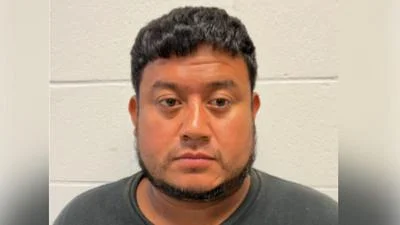Margaret Croke, State Representative for 12th District (D) | https://www.facebook.com/crokeforillinois
Margaret Croke, State Representative for 12th District (D) | https://www.facebook.com/crokeforillinois
According to the Illinois General Assembly site, the legislature summarized the bill's official text as follows: "Creates the Interactive Digital Media Tax Credit Act. Entitles interactive digital media companies that meet certain requirements to an income tax credit. Sets forth the amount of the credit. Authorizes taxpayers to take the credit beginning in the taxable year in which the company has met the investment requirement. Provides for the transfer of credits. Amends the Illinois Income Tax Act to make conforming changes. Effective immediately."
The following is our breakdown, based on the actual bill text, and may include interpretation to clarify its provisions.
In essence, this bill, known as the Interactive Digital Media Tax Credit Act, establishes an income tax credit for interactive digital media companies in Illinois meeting specific criteria. The credit applies to tax years starting from Jan. 1, 2026, to Jan. 1, 2036, and is valued at 30% of Illinois production spending and labor expenditures, with an additional 15% credit for employing residents from high-poverty or high-unemployment areas or veterans. Eligible companies can transfer unused credits, with limitations on transfers per year. The credit cannot reduce tax liability to less than zero and can be carried forward for five years. The act is repealed on Jan. 1, 2041, and takes effect immediately upon becoming law.
Margaret Croke has proposed another five bills since the beginning of the 104th session.
Croke graduated from the University of Michigan in 2014 with a BA.
Margaret Croke is currently serving in the Illinois State House, representing the state's 12th House District. She replaced previous state representative Yoni Pizer in 2021.
Bills in Illinois follow a multi-step legislative process, beginning with introduction in either the House or Senate, followed by committee review, floor debates, and votes in both chambers before reaching the governor for approval or veto. The General Assembly operates on a biennial schedule, and while typically thousands of bills are introduced each session, only a fraction successfully pass through the process to become law.
You can read more about bills and other measures here.
| Bill Number | Date Introduced | Short Description |
|---|---|---|
| HB1892 | 01/29/2025 | Creates the Interactive Digital Media Tax Credit Act. Entitles interactive digital media companies that meet certain requirements to an income tax credit. Sets forth the amount of the credit. Authorizes taxpayers to take the credit beginning in the taxable year in which the company has met the investment requirement. Provides for the transfer of credits. Amends the Illinois Income Tax Act to make conforming changes. Effective immediately. |
| HB1822 | 01/28/2025 | Repeals the Interchange Fee Prohibition Act. Effective immediately. |
| HB1823 | 01/28/2025 | Amends the Juvenile Court Act of 1987. Makes technical changes in a provision that states if the minor is in the custody of the Illinois Department of Children and Family Services, pursuant to an order entered under the Delinquent Minors Article of the Act, the court shall conduct permanency hearings as set out in the court review provisions of the Abused, Neglected, or Dependent Minors Article of the Act. |
| HB1582 | 01/22/2025 | Amends the Tobacco Products Manufacturers' Escrow Enforcement Act of 2003. Provides that, upon a distributor's failure to submit certain information, the Attorney General may send a notice of violation to the distributor and provide 10 days to cure the violation. Provides that, if the distributor does not cure the violation, the Attorney General may notify the Director of Revenue of the violation, and, upon receiving the Attorney General's notice, the Director of Revenue shall revoke the distributor's license. Amends the Tobacco Product Manufacturers' Escrow Act. Provides that a tobacco product manufacturer that elects to place funds into escrow may make an irrevocable assignment of its interest in the funds to the benefit of the State. |
| HB0010 | 01/09/2025 | Amends the Foster Children's Bill of Rights Act. Requires the Department of Children and Family Services to: (1) establish and maintain a decentralized supply of luggage to be used to transport the belongings of any child in the foster care system; and (2) develop procedures for the storage and distribution of luggage. Requires the Department to provide luggage to a child who is being removed from home or changing placement. Requires the Department, subject to appropriation, to purchase luggage that cannot otherwise be provided through grant or donation to ensure a sufficient supply of luggage for foster children. Provides that the Department shall submit an annual report to the Governor and the General Assembly that summarizes: (i) the number of times a trash bag was used to transport a foster child's personal belongings and the reasons the Department failed to provide the child with appropriate luggage; and (ii) the Department's supply inventory and inventory management practices for its luggage supply. |
| HB1076 | 01/09/2025 | Amends the Illinois Insurance Code. Provides that any individual or group policy of accident or health insurance that is delivered, extended, renewed, or modified after January 1, 2026 must provide coverage for at least one 6-month supply of each of the following for each infant covered by the policy: an early egg allergen introduction dietary supplement prescribed by a health care practitioner; and an early peanut allergen introduction dietary supplement prescribed by a health care practitioner. Provides that the coverage shall be provided without cost-sharing, except to the extent the cost-sharing limitation would cause a catastrophic plan to fail to be treated as a catastrophic plan under the Patient Protection and Affordable Care Act or would keep a high-deductible health plan from being treated as a high-deductible health plan or to the extent the cost-sharing limitation would disqualify the plan from a health savings account. Amends the State Employees Group Insurance Act of 1971 and the Medical Assistance Article of the Illinois Public Aid Code to require that coverage. Effective immediately. |





 Alerts Sign-up
Alerts Sign-up